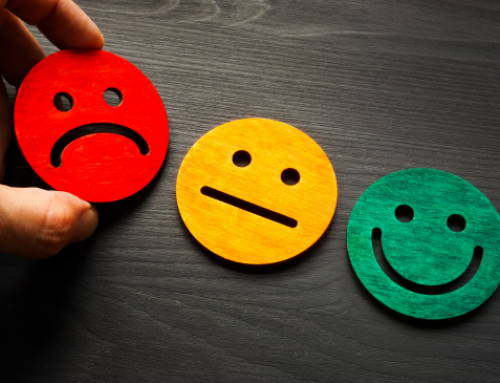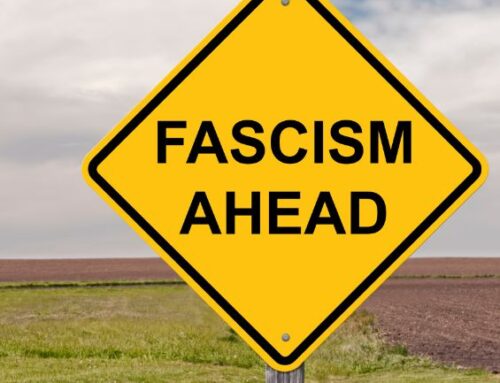John Carpay:
 Jasmin Grandel and Darrell Mills have asked the Saskatchewan Court of Appeal to rule against the Saskatchewan government’s ban on outdoor gatherings of more than 10 people. Grandel and Mills attended various peaceful outdoor protests in 2020 and 2021, resulting in hefty fines for violating Public Health Orders.
Jasmin Grandel and Darrell Mills have asked the Saskatchewan Court of Appeal to rule against the Saskatchewan government’s ban on outdoor gatherings of more than 10 people. Grandel and Mills attended various peaceful outdoor protests in 2020 and 2021, resulting in hefty fines for violating Public Health Orders.
In 2020 and 2021, Saskatchewan enforced its restrictions on outdoor gatherings against people protesting the lockdowns that violated their Charter rights and freedoms. But Saskatchewan did not apply the same law against the many who protested in support of the Black Lives Matter movement. On June 5, 2020, Evan Bray, then the Regina Police Chief, along with many other officers, attended a large Black Lives Matter rally in Regina with hundreds of people, thereby violating public health orders. Saskatchewan Premier Scott Moe and Chief Medical Health Officer Dr. Shahab openly and publicly encouraged and supported these illegal mass gatherings.
The lower court ruled that it is an “uncontroverted fact that transmission is more likely to occur in indoor spaces as compared to outdoor settings.” Saskatchewan produced no evidence of outdoor Covid transmission taking place during the large Black Lives Matter protests. What’s more, Saskatchewan did not present evidence of a single case of outdoor Covid transmission (from anywhere in the world) at a single-day mass-gathering event that lacked an indoor component. Saskatchewan did not dispute the accumulated scientific knowledge showing that outdoor transmission of Covid was negligible.
Permitting indoor public gatherings of 30 people, while banning smaller outdoor public gatherings with as few as 11 people, was irrational. Further, the selective enforcement of this restriction on anti-lockdown protesters, while allowing the blatant violation of this health order by BLM protesters was a betrayal of the rule of law, which is a cornerstone principle of Canada’s constitution. Maintaining public confidence in the justice system requires honouring what the Charter’s preamble states: “Whereas Canada is founded upon principles that recognize the supremacy of God and the rule of law.”
In upholding the 10-person limit on outside gatherings, the lower court adopted the “precautionary principle,” which holds that “when an activity raises threats of harm to human health or the environment, precautionary measures should be taken even if some cause-and-effect relationships are not fully established scientifically.” Translation: “The government need not provide compelling evidence to violate the fundamental Charter freedoms of expression, association and peaceful assembly.” It seems that this “precautionary principle” frees governments from needing to provide cogent and persuasive evidence to justify their violations of Charter freedoms.
Sadly, neither the Saskatchewan government nor the lower court displayed any concern about taking precautions against the physical, mental, social, financial or economic harms that Covid restrictions inflicted on citizens. Contrary to what the Charter requires, the lower court ruling is devoid of any detailed cost-benefit analysis that weighed lockdown harms against any actual lockdown benefits that might have resulted. Further, by late 2020 and into 2021, there was no longer a danger of imminent harm or potential for significant loss of life.
The court also asserted that “the public health system was overburdened and approaching a breaking point.” This may well have been true at some points in time. However, Canadian patients have, for several decades, been facing significant delays in getting treatment. Every winter, many Canadian hospitals have faced a “breaking point” when too many flu patients arrive at the same time, with some of them receiving the “hallway medicine” that has become a sad but regular feature of health care in Canada. Further, for most of 2020, government officials and the media frightened the majority of the population into not getting medical treatment at hospitals or clinics, which were often empty during lockdowns.
Sadly, the lower court seems to suggest that Canadians can do just fine without their Charter freedom of peaceful assembly because, as the court explained it, citizens can “express themselves online, communicate with each other online, and relay their opinions directly to government officials online.” This ignores the importance of the constitutional right that Canadians have to gather together in-person.
Without any meaningful analysis of constitutionally protected rights, and without any reference to compelling evidence that might justify the violation of these rights, the court simply declared that “the salutary effects of the Outdoor Gathering Restrictions outweighed the deleterious effects.”
Hopefully, the Saskatchewan Court of Appeal will correct errors contained in this judgment, and will restore the constitutional freedoms of Saskatchewanians.
John Carpay is president of the Justice Centre for Constitutional Freedom (jccf.ca), which provided lawyers to Jasmin Grandel and Darrell Mills in their court action against the Saskatchewan government.




